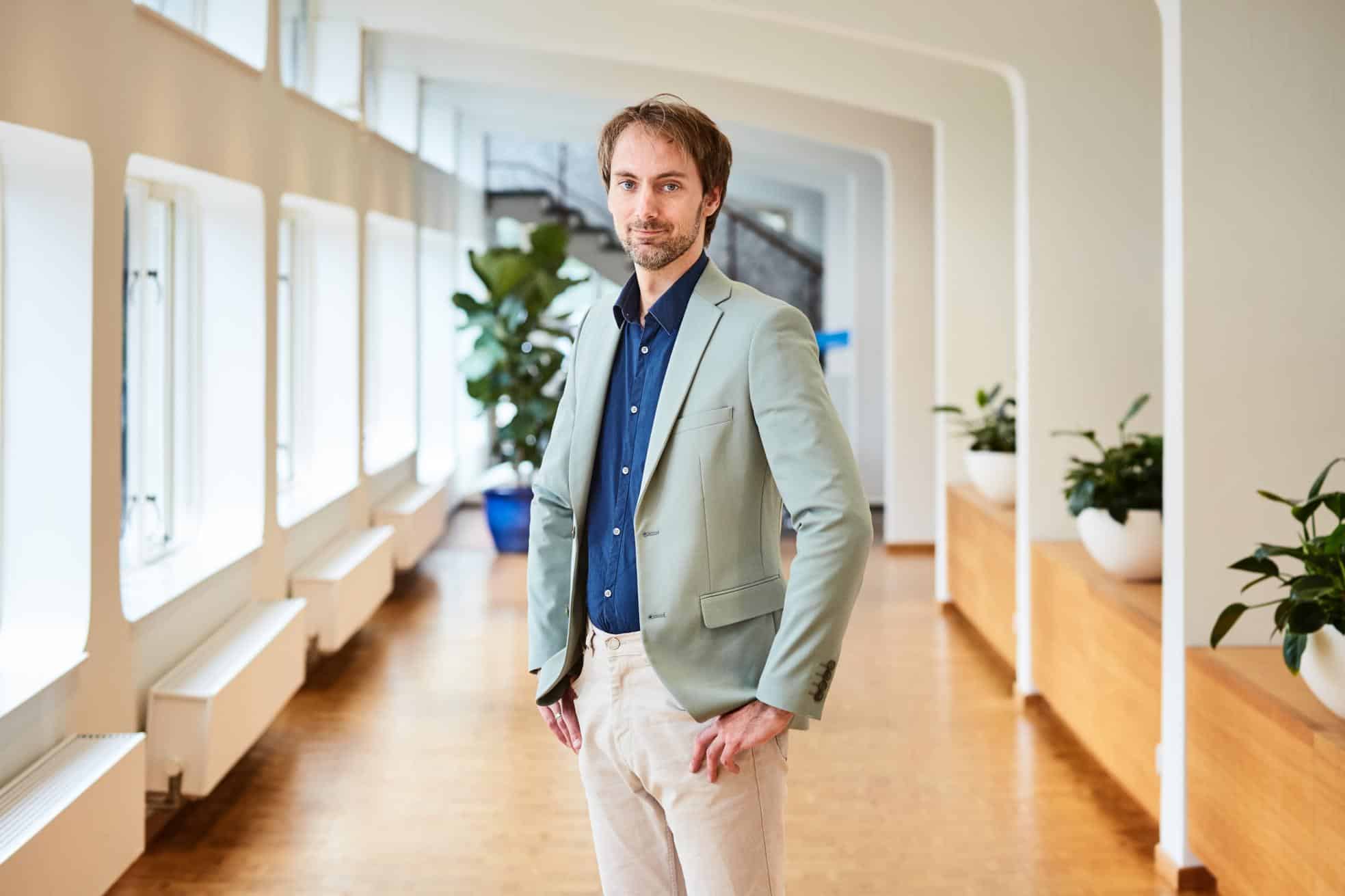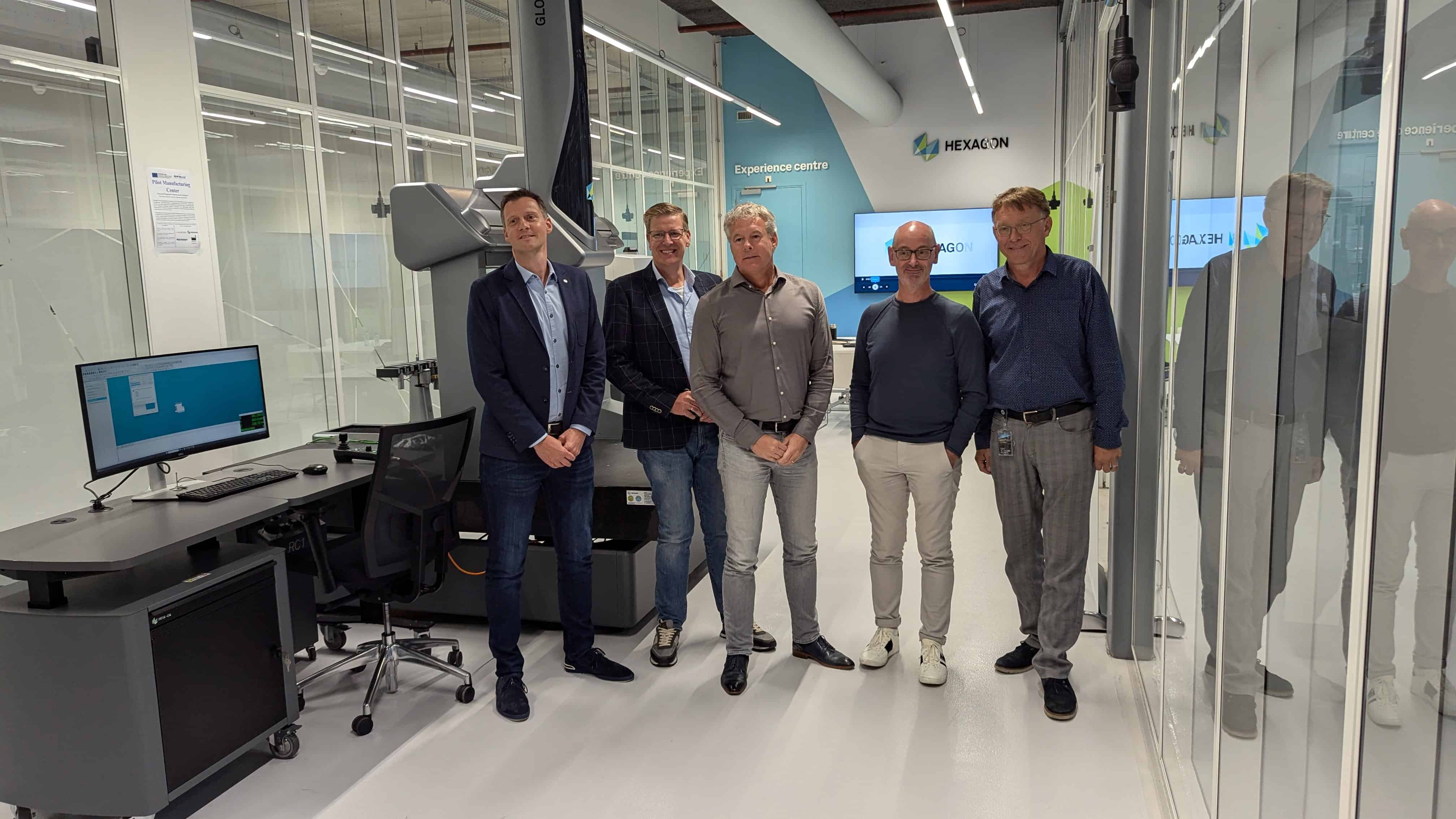
The Brainport region in the Netherlands is well known for tech giants like ASML, but especially for the up-and-coming talent that is present in the region. On 16 and 17 November, the Precision Fair will be held, where the high-tech manufacturing industry all gathers together. Mikrocentrum offers young talent and their budding technology projects a stage there through its Young Talent Program. “It started as a hobby project, but in the meantime, we are a fully-fledged start-up seeking customers and investors,” says Sieuwe Elferink, who is attending the trade fair to pitch his innovation on behalf of the MultiRotorResearch (MRR) student team.
“The high-tech manufacturing industry is struggling with severe staff shortages. So it is extremely important that young talent is introduced to companies and that this up-and-coming talent ends up in the right place,” says Merel Hartman, Ecosystem Manager at Mikrocentrum. Graduates, PhD students and start-ups will pitch their best projects at the fair. This allows companies and visitors to find out about pioneering technological projects quickly and efficiently. “Companies get the chance to spot future employees and partners and young people learn to further develop their power (soft) skills and build up contacts.”
Boost Your Talent Award
The Young Talent Program is made up of several awards. One is the Boost Your Talent Award, which Mikrocentrum presents together with the Dutch KIVI engineering association. Start-ups and student teams send in a 30-second pitch beforehand and hold a three-minute pitch on the day itself. A jury composed of Bert-Jan Woertman and Richard Hulskes, among others, will ultimately decide who the big winners are. They will consider aspects such as design and the substantiation underpinning the presented innovation and other factors.
The winner of this award will receive an education budget to the tune of €5,000 and also a budget for a marketing campaign through Wevolver, also worth €5,000. Those awarded in 2021 included Jette Bloemberg from the Delft University of Technology (TU Delft). She is developing a specialized needle for prostate interventions.

Wim van de Hoek Award
The Wim van de hoek Award is organised by the DSPE, a trade association for precision engineers. Candidates are nominated by their teachers. The award goes to a graduation project submitted by students from various universities in the Netherlands and Belgium.
Connections
“Last year, I had the opportunity to attend the second edition of the program and I was struck by the fact that immediately after the pitches, the public mingled with the young talent there to set up appointments,” Hartman went on to say. “It’s great to see that connections are actually being made between these young people and the business community.”
“Apart from that, it is also really cool to see how young people step out of their comfort zone and grow in the way that they present their ideas. Last year, for example, team HART was still sweating it out on stage, and this year they also took the plunge to compete again. I am really looking forward to all the new innovations and ideas this year.”
Smart, autonomous drones
Sieuwe Elferink is a 22-year-old Technical Computer Science student at Fontys University of Applied Sciences in the Dutch city of Eindhoven. He is taking part in the Young Talent Program at the Precision Fair and will be there to talk about his student team MultiRotorResearch (MRR). The team is focusing on the development of smart, autonomous drones that are capable of learning human flight behavior to help them fly even better in difficult conditions. This will come in handy for bridge or agricultural inspections, among other things.
“I’ve been busy with robotics ever since I was really young,” he reflects. “When I was 12, I converted my quad into a self-driving vehicle. I used a technique back then that was based on artificial intelligence that enabled the quad to learn human driving behavior. That worked surprisingly well, and it dawned on me that I wanted to do more with that. Eventually, I started focusing on autonomous drones. What began as a hobby project has grown into a fully-fledged student team. There is a great deal of interest from potential customers, we have landed some grants and are also in discussions with several investors.”
In addition to presenting a pitch, the team will also be at the Precision Fair with its own exhibition stand. Using visuals, they will be demonstrating exactly how the autonomous drone works. “We want to showcase ourselves to other companies at the fair. One of the most important things when starting a company is getting to know people who can help you move forward. You can have a great idea, but if no one else is aware of your existence then you won’t get very far.” So far, the team is already working with two parties: a drone manufacturer and a party dedicated to analytics software for the agricultural sector. “But we are more than happy to add more partners to our list. For instance, in the future we also want to focus on infrastructure inspections. We hope to meet new potential partners at the fair.”
Brand-new ‘senses’
Gijs Horsten, a 21-year-old ICT student at Fontys University of Applied Sciences (and soon-to-be student at the Eindhoven University of Technology, TU/e), is also participating in the program. Horsten is part of the TU/e start-up team HART, which uses ‘human augmentation’ to develop new ‘senses’. Their first venture was a sleeve that allows people to feel vibrations on their skin and interpret these as patterns. Meanwhile, the team is working on a new prototype: a compact, more advanced follow-up version of the first sleeve.
“This could be used, for example, by the visually impaired. Through the sleeve, they can absorb information that they normally wouldn’t get. We are also looking at other possible applications. For a start, I’m researching how we can put our concept to use in the gaming world. The possibilities are endless. We are happy as long as we can make a significant social impact.”
HART is also hoping to make its name known to the outside world at the Precision Fair. “Exposure is always good. We will be there to show people what we can do and try to pique their interest. As for me, it’s going to be my first time giving a pitch. That’s pretty exciting, but it is also a learning experience. I’m going to talk about our new design and the whole process underlying it. Ultimately, I hope to make new contacts at the fair and find new partners who can help us further.”









